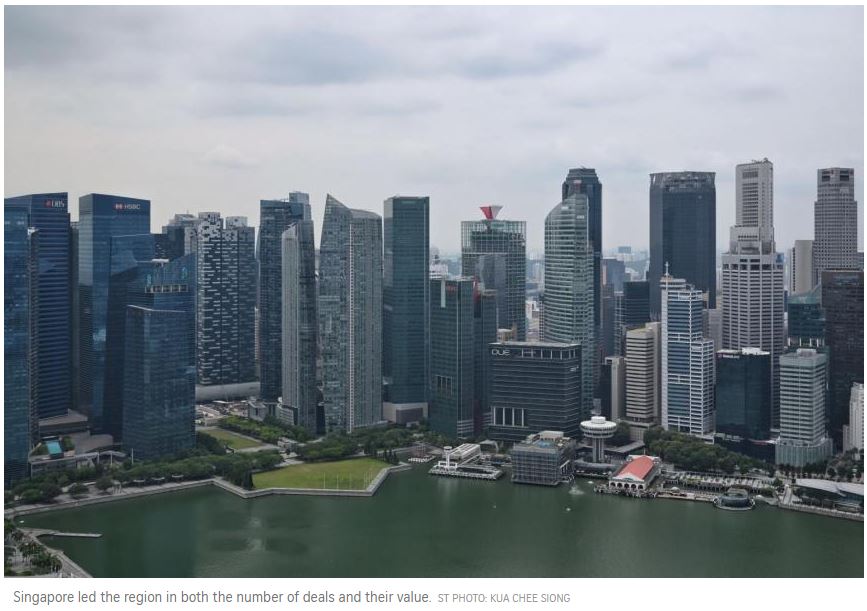Singapore: Wholesale central bank digital currencies a key issue: MAS chief
Central banks need to figure out how they can safely use central bank digital currencies (CBDCs) for businesses to send money to one another in cross-border payments, Mr Ravi Menon, managing director of the Monetary Authority of Singapore (MAS), said at an International Monetary Fund and Swiss National Bank conference in Zurich yesterday.
A CBDC is the digital form of a country’s fiat currency. The Singapore central bank divides CBDCs into retail and wholesale CBDCs. A retail CBDC is issued by the central bank directly to the public, while a wholesale CBDC does not enter the public space and is circulated within the interbank system.
Mr Menon said wholesale CBDCs help to solve a “larger problem” compared with retail CBDCs.
He argued that wholesale CBDCs enable atomic settlements, or the instant and direct exchange of assets. This exchange is made possible by blockchain technology, which enables a crypto or digital asset to exist.
If atomic settlement can be achieved, cross-border payments can then be made “at theoretically close to zero cost”, he said.
It also mitigates counterparty default risk and enables savings on collateral and pre-funding accounts and reconciliation that banks spend a lot of time on today, Mr Menon said.
On the amount of retail CBDCs central banks should issue, the MAS chief is of the view that they should be capped at levels that are related to the monetary base so that they do not disrupt the roles of financial intermediaries such as banks and payment providers while meeting the specific needs of segments of society.
Mr Menon said a unique benefit of the crypto ecosystem is that it enables high-value assets to be fractionalised and made more accessible to a wider pool of investors, as well as illiquid assets to be monetised.
This unlocks economic value, enhances financial inclusion and enables more seamless and efficient financial services, Mr Menon said during a panel discussion on policy challenges from the rise of digital money and crypto assets.
The discussion comes as central bank chiefs around the world try to wrap their heads around how to regulate and move forward with crypto assets, given their high risks and volatility.
It also comes amid a sell-off in the cryptocurrency market. Bitcoin, the world’s largest cryptocurrency, yesterday fell below US$30,000, less than half its peak price of about US$65,000 last November and clocking its lowest price for the year.
In the light of a tightening of monetary policy, recession fears and diminishing liquidity, investors are turning away from speculative assets in a global sell-off.
The United States Federal Reserve last week authorised a half-percentage point rise in its benchmark interest rate, making it the largest single increase since 2000.
The MAS has in the last two years granted licences or in-principle approvals to 11 digital payment token service providers such as Paxos as well as crypto platforms like Revolut and Luno.
Last week, it granted a licence to crypto exchange Coinhako, allowing it to provide digital payment services without being subject to specific thresholds. So far, DBS Digital Exchange, Fomo Pay, Independent Reserve and TripleA have been granted similar licences by the MAS.
Source: https://www.straitstimes.com/business/economy/wholesale-central-bank-digital-currencies-a-key-issue-mas-chief


 English
English




